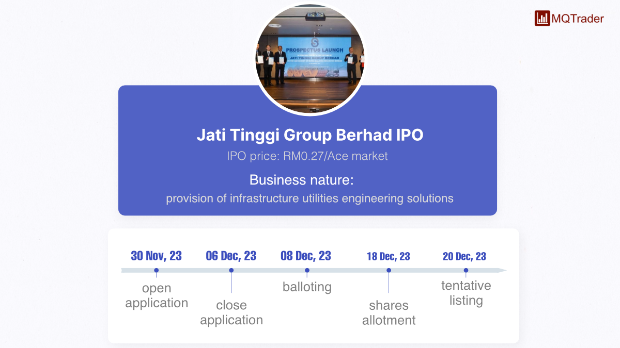Dr Chan: Bull Market To Stretch Till 2020
Tan KW
Publish date: Tue, 05 Mar 2019, 12:48 PM
Some years back, China and Philippines were embroiled in a territorial dispute over the island reefs in the South China Sea. Singapore took a position in support of the Philippines, causing bilateral relations with China to deteriorate.
However, after Philippines President Duterte took power, he reoriented the foreign policy to lean towards with China. As if a blessing in disguise, this also gave Singapore an opportunity to step out of the contentious issue of having to “take sides”.
Recently, the US Secretary of State Mike Pompeo has stepped up the offensive, calling on other nations to ban China’s Huawei equipment and services, even warning them of potentially losing the US as a major partner.
In a similar fashion, the US is currently forcing other nations to pick their side. If Pompeo was to visit Singapore and make similar demands, how should Singapore respond? Moreover, given US President Trump’s inconsistent nature, there is even greater risk of cosying up with the US only to end up drawing the ire of China in the process.
Just recently, Trump once again shifted his position when he took to Twitter calling on US companies to “win through competition, not by blocking out currently more advanced technologies.”
The message could be interpreted by Huawei as the US’ willingness to allow for some degree of participation in the US 5G network. If this becomes a reality, countries and companies that have previously expressed support for the ban of Huawei, could find themselves in a very awkward position.
To understand why the US is determinedly targeting Huawei, one must realise the profound applications of communication technology.
The “5G” is the fifth (and upcoming) generation of mobile internet connectivity. Through the decades, we have already seen how a kettle-sized 1G mobile phone evolved into the 4G-type of smart devices that we see today. Already, mobile communication technology has advanced tremendously to become an indispensable part of daily lives. As good as the 4G already is, the 5G would set a new precedent – it is supposedly 100 times faster.
Pompeo’s pressure to force US allies to ban Huawei’s equipment and services belie the fact that China (Huawei) may have indeed overtaken the US in 5G development. Unfortunately, Huawei is not a listed entity. However, another Chinese telecommunication equipment maker ZTE Corporation (ZTE) is listed in Hong Kong, and it also holds a number of patents for 5G technology.
Another notable thing about the Twit, Trump said he “wants 5G, and even 6G technology, in the US as soon as possible.” This can also be interpreted that the US currently does not have the capability to fast-track 5G deployment without relying on Huawei and ZTE. Under such current circumstance, other countries would all the more need to rely on China’s Huawei and ZTE to deploy 5G services.
The uncertainty of when the US could complete the development of 5G technology on their own is also causing some allies to waver, as countries that accept the US demand to ban Huawei could possibly lag behind in those that do.
Already, Huawei and ZTE have launched their 5G smartphones. The new launches also caused some fever for 5G-concept stocks amongst investors. As Huawei is not listed, HK-listed ZTE saw the most interest amongst investors as it does not trail far behind Huawei’s “Gold Standard”. Meanwhile, other 5G-concept stocks include China Mobile and China Tower. While the 5G market would not be as big in Singapore, telecommunication stocks could see some speculation when adoption scales up.
While the US stock market continued to stay on the uptrend, there was no impetus for a breakthrough rally as economic outlook becomes less sanguine. On 14 February and 21 February, the US stock market corrected on the release of some dismal economic data. Thankfully, the corrections were minor and the US stock market managed to recover quickly and rise higher.
That said, investors should not be overly concerned with historical economics. As the stock market is a leading indicator of economic outlook, investors should look further into the horizon as well. Minor corrections in short time frames are but opportunities for short-term speculators to arbitrage. Dismal economic data is hence the spark.
Latest US economic data revealed that the US real economy has sharply decelerated since December. This was the result of Federal Reserve’s December interest rate hike which investors were definitely not hoping for. As a result, the hawkish stance spooked a major sell-off and the Dow Jones Industrial Average plunged to its lowest point on 24 December, in 2018. However, in recent statements, the Fed has softened to a more dovish stance on interest rate. With the possibility of hikes being lower, the US economic outlook should be significantly stronger.
Now, US and China negotiators have entered the phase of drafting a memorandum of understanding to resolve the two countries’ trade disputes. And soon, Trump will turn the muzzle towards the EU – with Germany as the main opponent – and Japan. Just when the US-China trade war is taking a curtain call, the US Department of Commerce issued a report on US security threat of car imports, which could lead to Trump firing a 25 percent tariff threat.
The US itself is a major automobile producer which makes it highly competitive. If Trump indeed imposes tariff on all imported cars, the US automobile industry would greatly benefit. While Chinese may not relocate to the US in face of tariff threats, that could not be said of major car manufacturers in Germany and Japan.
On the local front, DBS Group Holdings reported a 28 percent jump in net profit in FY18 over the last fortnight. Operations in China and Hong Kong saw segmental profit grow even faster by 37 percent. As such, investors should keep watch out for bank stocks in China, Hong Kong and Singapore.
Back in December, Trump refused to sign a Senate version spending bill as it excluded US-Mexico border wall funding which he demanded. After putting up the White House version of the bill which included for funds for the wall, Democrats voted to block the new House bill.
As a result, the stalemate caused the US government to enter a partial shutdown. It was only until Trump agreed to a temporary short-term spending deal that helped to allow Republican and Democrat lawmakers to negotiate for a border wall funding bill that ended the shutdown. Trump also threatened to declare a state of emergency to bypass Congress, if the Democrats did not meet his demands this time round.
A state of emergency is declared when a country is in an unusually severe circumstance that endangers it. On 15 February 2019, Trump really took actions and declared that the US has entered a state of emergency. However, the US stock market did not seem to be affected and continued to rise higher on that day, as if condoning Trump’s actions.
Recall the Fed also raised interest rate once again in December last year, leading to Trump publicly warning that he would indeed fire the Fed Chairman Jerome Powell. While the US Constitution does not declare that the Fed Chief has immunity from the US President, it would be a precedent for it to happen. Yet, Trump once again showed that he does not care about political correctness, and Powell had better believe it.
http://aspire.sharesinv.com/60064/dr-chan-bull-market-to-stretch-till-2020/
More articles on Good Articles to Share
Created by Tan KW | Jul 17, 2024
Created by Tan KW | Jul 17, 2024
Created by Tan KW | Jul 17, 2024
Created by Tan KW | Jul 17, 2024
Created by Tan KW | Jul 17, 2024
Created by Tan KW | Jul 17, 2024
Created by Tan KW | Jul 17, 2024
Discussions
yes, likely
because 2020 US election year
Trump will goreng market high high
he is very particular about state of the market as a measure of the success of his presidency
a very unique president
2019-03-05 13:21






















speakup
yah gah?
2019-03-05 13:18